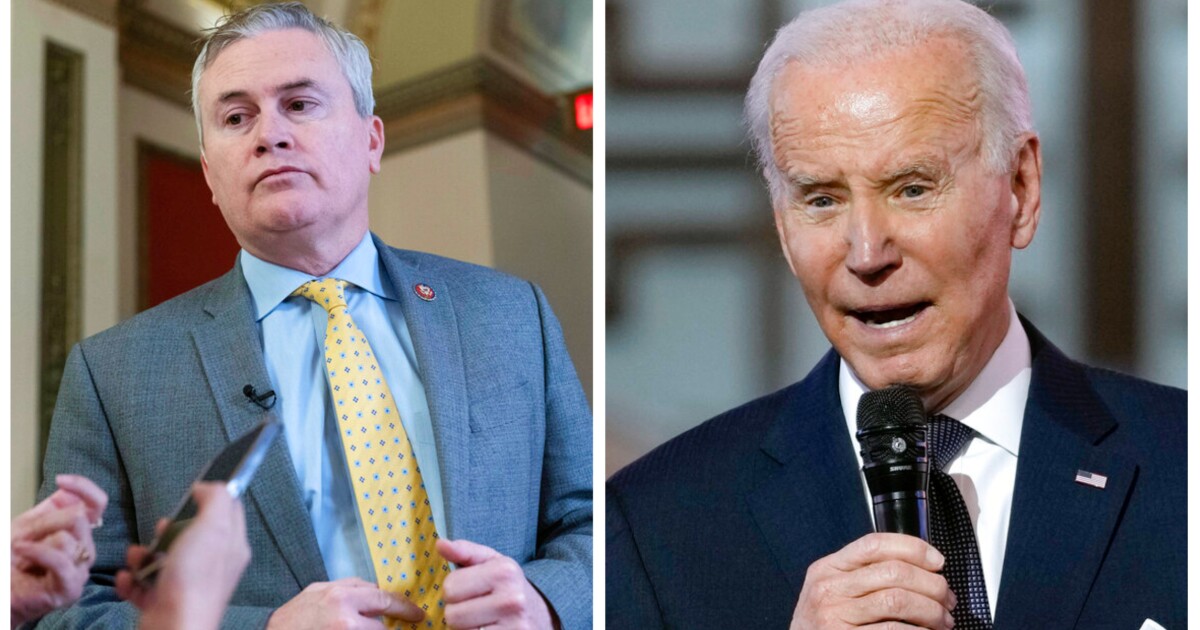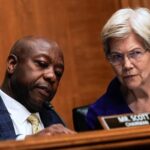

House Oversight Committee members are eyeing ways to work across the aisle on legislation inspired by the controversies that have followed the Trump and Biden families for the past several years.
Chairman James Comer (R-OK) and Rep. Jamie Raskin (D-MD), the committee’s ranking member, have engaged in talks over a pair of bills, one that would increase financial accountability for the family members of presidents and one that would shore up the retrieval process for classified documents, that could address the legal loopholes that have landed both the current and former president in political hot water.
It’s an approach that could open the top figures in both parties up to scrutiny. Congressional Democrats have long sought more information about the business dealings of former President Donald Trump’s children, particularly Jared Kushner and Ivanka Trump.
The foreign business ties of Hunter Biden and, to a lesser extent, the president’s brother Jim Biden, have become a top focus for congressional Republicans.
And both Donald Trump and Joe Biden have found themselves embattled by separate showdowns with the National Archives and Records Administration over classified documents they each took home upon leaving office.
The talks between Comer and Raskin, confirmed to the Washington Examiner by a person familiar with the proposals, mark a rare opportunity for bipartisanship on a committee that critics often accuse of operating as a highly political body.
“There are seeds of real legislative promise,” Raskin told Axios, which reported on the potential legislation.
HOUSE OVERSIGHT DELAYS HEARING ON BIDEN FAMILY BUSINESS DEALINGS
Comer said the prospect of twin ethics bills represents the “two biggest areas” where members of his committee could come together in an otherwise polarized environment.
The two full committee and six subcommittee hearings the oversight panel has held so far this year under its new Republican leadership, including one on the border crisis and another on the origins of the pandemic, have all focused on topics that GOP lawmakers are more interested in than their Democratic colleagues.
The financial gains of Hunter Biden, however, continue to be a subject of intense interest to House Republicans that has yet to receive as much public scrutiny from congressional investigators.
The committee delayed a hearing set for Friday on the Biden family’s business ties, featuring testimony from a top Treasury Department aide, because the Biden administration witness refused to attend that day.
But Republicans have said they want to examine whether Hunter Biden’s contracts with foreign companies created an avenue for malign actors to seek influence over his father, especially when he was vice president.
Perhaps the most controversial of those contracts involved work Hunter Biden did with Burisma, a Ukrainian energy company whose board Hunter Biden served on during the time his father played a major role in guiding U.S.-Ukraine relations under the Obama administration.
Senate Republicans probed the relationship before the 2020 election, highlighting the meeting Joe Biden had taken at the White House with his son’s business partner, who was also on the Burisma board, as the company endured allegations of massive corruption.
“Furthermore, the presence of Hunter Biden on the Burisma board was very awkward for all U.S. officials pushing an anticorruption agenda in Ukraine,” a top diplomat at the U.S. Embassy in Kyiv said in an email surfaced by Senate Republicans in 2020.
Congressional Republicans have also signaled interest in Hunter Biden’s work in China.
Comer has said Hunter Biden’s work with Chinese Communist Party-linked officials posed a “national security threat.”
Hunter Biden appeared to earn nearly $5 million from a Chinese energy company over 14 months starting in 2017, for example, despite none of the projects Hunter Biden discussed with the company ever becoming a reality.
But insight into Hunter Biden’s tangle of foreign consulting contracts remains incomplete, in large part because, as the child of a then-vice president, he was not required to disclose his finances.
Jared Kushner and Ivanka Trump, by contrast, did have to disclose some information about their income for several years because both worked as senior aides in the Trump administration.
However, the requirements would not have applied had they remained informal advisers to Donald Trump, and congressional Democrats have pushed for information about whether Kushner’s family benefited from policy decisions he helped steer while working for his father-in-law.
Democrats, for example, have questioned whether Kushner’s advice on Middle East policy stemmed from a desire to help his father, a real estate developer, avoid financial trouble.
The precise nature of proposed reforms to financial disclosure rules remains a matter of discussion among Oversight Committee leaders. However, one change potentially on the table could involve asking for more information from family members working in the influence industry while the relative of a president.
The laws surrounding classified information have also come under discussion.
Comer has said his committee will look at what is required of top officials in possession of classified documents when they leave the federal government.
CLICK HERE TO READ MORE FROM THE WASHINGTON EXAMINER
Under current law, presidents and their teams have broad discretion to take documents with them in boxes when they leave the White House and return those that are official in nature to the National Archives on what is essentially an honor system.
Reforms could provide more structure to that process and ensure any boxes leaving government property don’t contain classified records.







